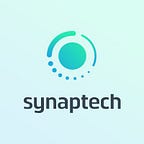Every scientific field has attached to it a long, heavy and not-very-understandable vocabulary. Complicated words that make you frown. The computer science field, such as Artificial Intelligence makes no exception to this rule. The good part is that there are plenty of articles defining it. The bad news is that many of them treat you like some sort of scientist. Therefore, when trying to find out more about AI, you find yourself into a loophole of the internet, looking for the meaning of every term.
We know how unreliable Wikipedia can be, that is why we, here at Synaptech we will start a series of articles. We will take each word from the glossary, to define and offer relevant examples of companies and products that use this kind of technology. We want to make it easier to understand and to help the community to learn more about AI.
About Artificial Intelligence
Artificial Intelligence means the study of intelligent agents — any device that can perceive a certain environment and can be programmed to understand it and take actions consequently. Fortunately, they cannot do it by themselves.
The things AI can already do is to play poker or making recommendations. As books, movies and even a real experiment, already taught us, they can mimic human cognition, but this is not very advanced.
In a nutshell, they can do everything a human mind can, from performing complicated calculations to predicting patterns and even play mind games better. No, they cannot read your mind, at least not for now.
Besides poker, in 1997, a chess-playing computer developed by IBM, called Deep Blue defeated Garry Kasparov, who is considered the world’s best chess player. However, a year before, Deep Blue lost, but then they upgraded it heavily and it won.
Artificial Intelligence types
Weak AI, also known as Narrow AI, is a system created and designed to do a particular task. The most relevant example in this context is Amazon’s personal assistant, Alexa, which is designed to play music or audio books, set alarms, stream podcasts, provide weather information in real-time and other information at request. Alexa can also interact with different smart devices, making it a smart home hub. But its actions are limited and it cannot grow a sudden conscience and go against the laws of robotics.
Strong AI or True AI, is a system constructed with general cognitive abilities. When a device uses this type of intelligence can understand and solve unfamiliar tasks because it is supposed to have enough knowledge to find a solution. This AI type is at the beginning, although Google’s robots become more human-like — greedy, aggressive and learn quickly.
To create Artificial Intelligence, you need plenty of algorithms, frameworks, complicated calculations and a deep knowledge of different codes. We will write about them in our future articles. Until then, don’t forget to subscribe to our newsletter!
